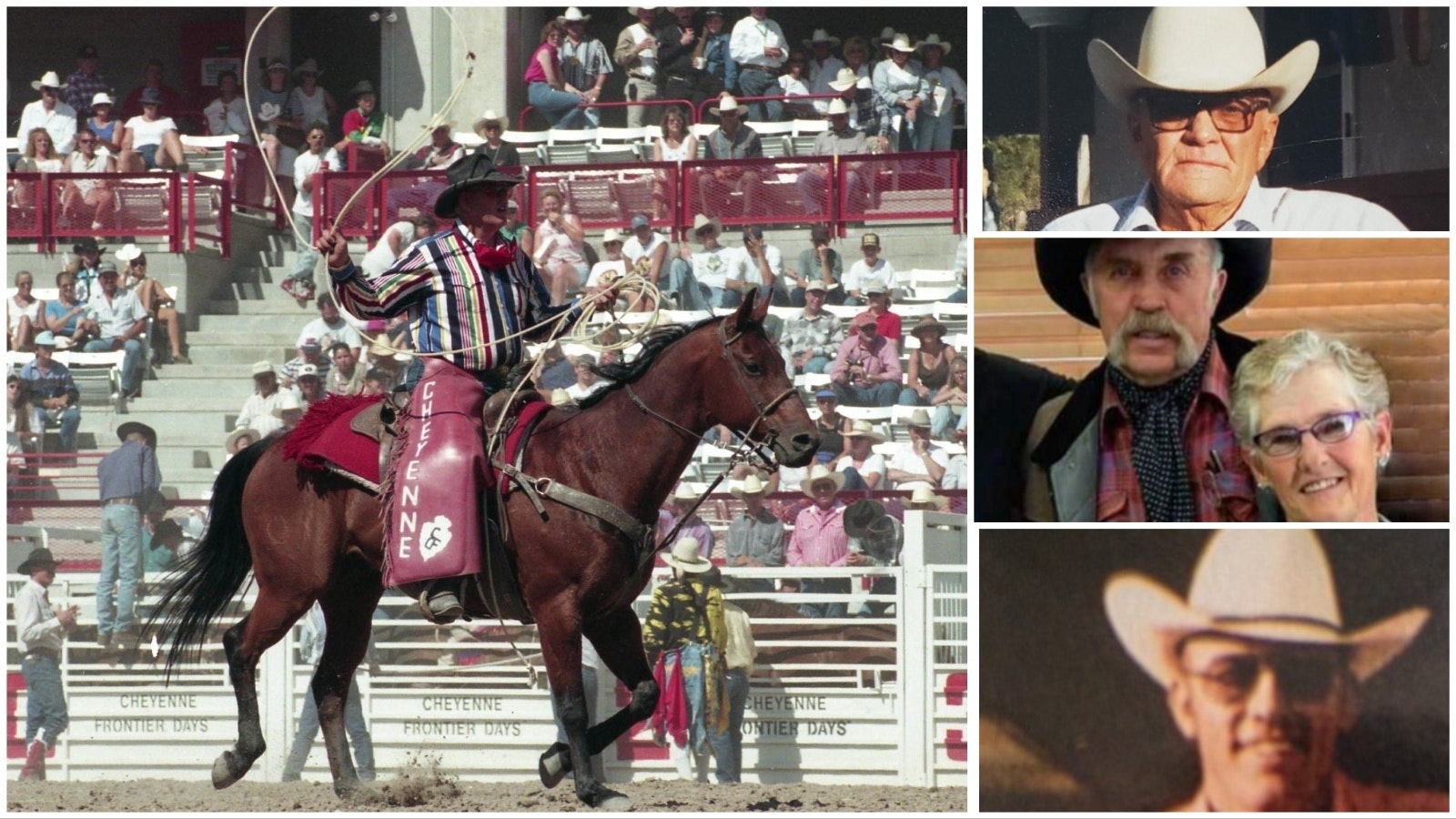As cowboys and visitors arrive in Cheyenne for Frontier Days to take part in the rodeos, parades, and other activities, they are following in the long traditions of the event. Wyoming Cowboy Hall of Fame inductees have saddled up to ride in Cheyenne for decades. And today we recognize the traditions for National Day of the Cowboy.
First approved in 2005 in a resolution introduced by U.S. Sen. Craig Thomas (R-WY), the National Day of the American Cowboy traditionally coincides each year with Cheyenne Frontier Days. The resolution was renewed this year in a bipartisan effort led by U. S. Sens. John Barrasso and Cynthia Lummis, both R-WY. National Day of the American Cowboy honors the culture, traditions and values of the American Cowboy way of life that are still alive today.
“In Wyoming, we commit to following the Cowboy Code: living a life of honesty, hard work, and integrity. The American Cowboy is a time-honored embodiment of our way of life,” said Sen. Barrasso in announcing the resolution this year.
“Cowboys have a legendary history and thriving culture today thanks to the modern ranchers, ropers and riders who saddle up each day and carry on the tradition,” added Sen. Lummis.
Among the senators who supported this year’s resolution were John Thune and Mike Rounds from South Dakota, John Hickenlooper of Colorado, Jim Risch and Mike Crapo from Idaho, Kevin Cramer and John Hoeven of North Dakota, John Cornyn and Ted Cruz from Texas plus senators from Louisiana, Arizona, Nebraska and Nevada.
Cheyenne Frontier Day was born in 1896 when local cowboys decided to hold a contest to see who among them was the best rider. The celebration quickly expanded to several days and it’s been going strong for well over a century. The current celebration includes pancake breakfasts, night shows, vendors, carnival rides, American Indian dancing and culture. But at the core it is still a rodeo where cowboys and cowgirls ride some of the best stock in the country to demonstrate their abilities to stick for eight seconds or make a fast run while swinging a rope, round the barrels or to wrestle a steer to the ground.
In 1903 Guy Holt, a local cowboy from Iron Mountain just west of Cheyenne, won the saddle bronc riding contest at Cheyenne Frontier Days and in that era, if a cowboy won Cheyenne, he was considered the World’s Champion. Holt was inducted into the WCHF in 2014.
Other WCHF inductees with connections to The Daddy in Cheyenne, worked as pickup men, or assisted with the annual parades.
Sonny and Laura Pulvar, of Glendora, WCHF inductees in 2021, have worked as outriders for the CFD parades for at least 29 years. This cowboy couple worked for True Ranches for 22 years – and had other ranch jobs through the decades from the time he was a boy working with his parents on the Pulvar Ranch on Laramie Peak, to their days together on the Key Bar Ranch outside of Glendo.
Wayne S. “Hoot” Hunter of Lance Creek supplied horses for use in Cheyenne Frontier Days parades along with his good friend George Bruegman. A 2022 inductee into the WCHF, Hunter and his three sons also worked as parade outriders – an important job to ensure that all the unique horse-drawn vehicles that are part of the parade safely make their way through the Capital City. Also involved in that work was Paul Bruegman, a three-time pickup man at the National Finals Rodeo. Paul owned the Bruegman Rodeo company with his father George. His family held the parade contract for 54 years for CFD. He also worked in the arena at Cheyenne Frontier Days as a pickup man from 1961 to 1987 and raced chuck wagons from the time he was 14 years old. Bruegman was inducted into the WCHF in 2014.
One of the WCHF founding board members, Russell “Pinky” Walter became the rodeo coach and instructor at Laramie County Community College in Cheyenne in 1986 and was involved in producing many rodeos – as well as spending time in the arena at CFD as a pickup man. Inducted into WCHF in 2021, he had plenty of experience in the saddle as a steer roper, and on the ground as a rodeo judge.
James Clay “Jim” Hageman grew up on a ranch near Shawnee, Wyoming, where he was the third child of six. Jim Hageman's maternal grandfather brought a trail herd from Texas in 1878. These cattle were taken to Ogallala, Nebraska, where they were split. The big steers were shipped to South Dakota and the breeding livestock was brought to Wyoming. There were only 11 cowboys for 4,000 head of cattle on this trip. This started the cowboy heritage for Jim Hageman. All while growing up, his paternal uncles ran roundup wagons across the state. He rode and worked for these uncles on the roundups covering an acceptable amount of land on horseback across the state.
As a kid, his uncle raised many of the horses used at Cheyenne Frontier Days including parade horses and broncs for the wild horse race. Jim and his brothers worked for many years at Cheyenne helping pick up bucking horses and organize the parades.
Current WCHF Board member Larry Gomez of Douglas, who represents Region 4 – Converse and Natrona Counties – also has long connections to Cheyenne Frontier Days. He and wife Julie have been outriders for parades for about 20 years. They are in Cheyenne now – saddling up for National Day of the American Cowboy and to support CFD.





